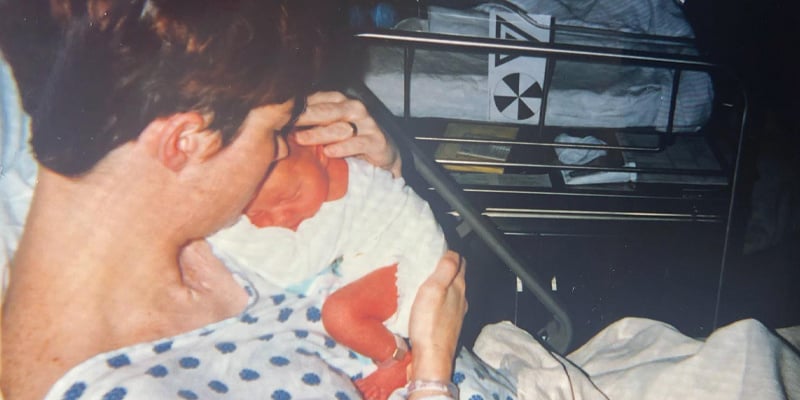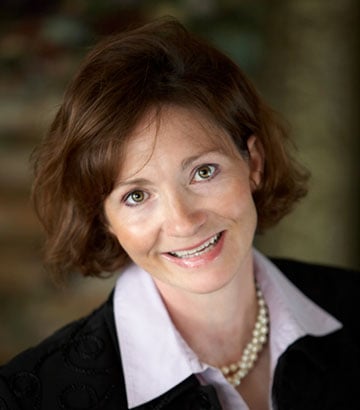Twenty-six years ago, when I gave birth to my eldest daughter, I had a midwife in attendance who was part of a local obstetrics practice. I gave birth at Rose Medical Center in Denver, and an obstetrician was on call should anything go array. At the time, I didn’t think the choice of midwife was unusual. However, now I know that my choice (in 1992) was rare.
Why a Midwife?
Maybe it was because my sister had a midwife when all three of her children were born. And every birth was uneventful. She had no complications, and the kids were born with all their fingers and toes and were healthy. Or maybe because my mother had a midwife for the birth of her four children in the 1950s and 1960s. Or because I grew up in England, where midwifery is a much more common practice. More than 50% of births are midwife-assisted in the U.K. Who knows why I chose it, but I am glad I did.
What Makes Some Women More Amenable to the Prospect of a Midwife Versus an OB/GYN?
For me, it was a normal, natural path to choose a midwife. My mother’s best friend, Sunny, was a midwife and my mom chose her to be there for all of her births in the 1950s and 1960s. A midwife was an anomaly back then when the norm was a drug-fueled birth where mothers received a cocktail inducing something called “twilight sleep." In addition to knocking the patients out, doctors commonly used forceps and episiotomy during deliveries to prevent rare complications. This approach of aggressive interventions to minimize the potential for the worst-case scenario was common. For my family, who resided in Wyoming at the time, midwifery seemed a little more palatable.
Today, midwives attend 9% of U.S. births. In Europe, they are highly regarded and in some countries are the main provider during labor and delivery. Even Kate Middleton (Prince Williams’ wife) used a midwife with the birth of her daughter Charlotte. So, if it’s good enough for the British Royal family, why isn’t it good enough for Americans?
A lot of it boils down to how we see and interact with our healthcare system. We’re taught to believe that medical doctors are the best at providing care regardless of one’s condition – emergent, urgent, or a naturally occurring condition like pregnancy – and that the best possible outcome and the safest options are with a physician. That may be the case in lots of medical situations. Believe me, I’d rather have a neurosurgeon work on my brain if I have a brain tumor or an emergency room doctor treat me for a heart attack, or an oncologist if I have cancer. After all, these are specialists in their fields. So, too, are nurse-midwives who are highly trained and skilled in pregnancy, labor, delivery, and post-partum care. They are not witch doctors. They actually receive extensive education. And the University of Colorado College of Nursing has one of the best nurse-midwifery programs in the country.
I’d much rather include an obstetrician when needed in situations if labor is not progressing at all, the mother is hemorrhaging, or if the baby is having challenges transitioning to life outside the womb. Just because the baby is not coming as quickly as the M.D. thinks, should not be the reason for intervening. In the U.S., cesarean-section rates are currently at 32%. That is nearly triple the rate of other industrialized countries. I can’t help but think that it’s not all about the health of the mother and child. It smacks a bit of “doctor knows best.”
Who Chooses Midwives?
Today, all types of people choose midwives. From those who want a certain type of experience such as an un-medicated birth or a water birth, to consumers looking for a particular outcome, to those who have a distrust of the medical establishment. Midwifery appeals to a variety of people who are looking to align their birth experience with a personal philosophy. It may not be as widespread as the traditional OB/GYN path, but it has its following. And I highly suggest that if you are considering midwifery that you thoroughly vet the practices. Just like you would do for a good OB. Ask friends and family who they used and why. If a practice has regularly scheduled meet-and-greet sessions, sign up! You want to feel comfortable with the practice, the providers, and where you will give birth. Most practices like the Center for Midwifery – Longmont are affiliated with hospitals and require the mothers to give birth at the local hospital. This ensures a safer birth.
For my daughters, I will highly suggest a midwife. For multiple generations of my family, it has proven to be a safe option in childbirth. I think the key is being educated about what you want your pregnancy and birth experience to be like. And, feeling like you are part of the process. Remember, if you choose a midwife, it doesn’t mean that you won’t have access to all the medical care imaginable, including an obstetrician, anesthesiologist, and pain medication. Millions of women throughout the world choose midwives, and for them, it’s proven to be a safe choice.
The point is – it’s your choice.




